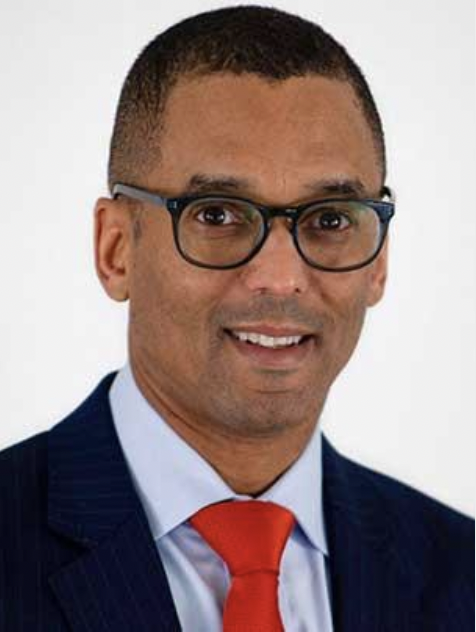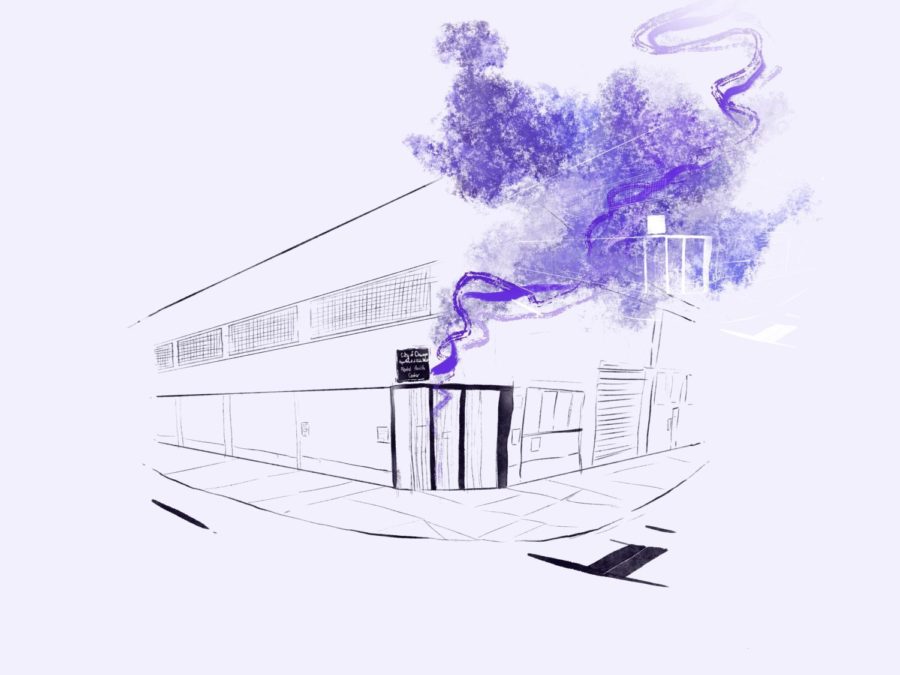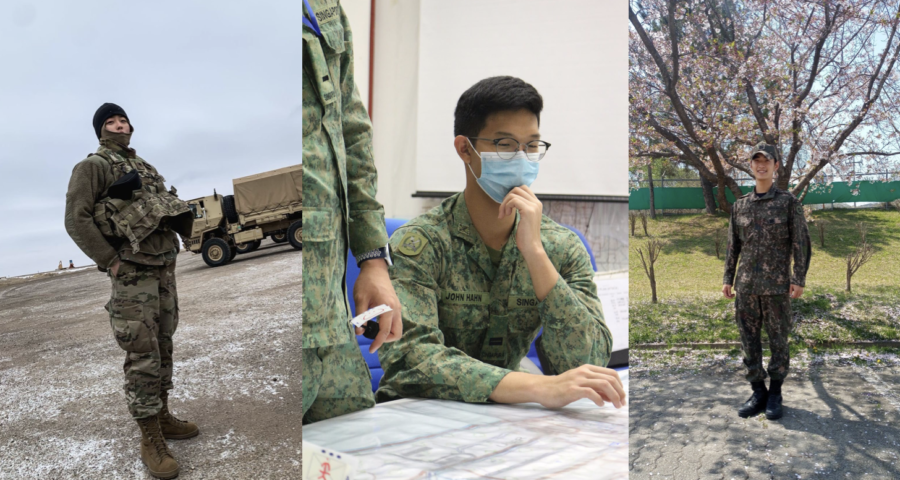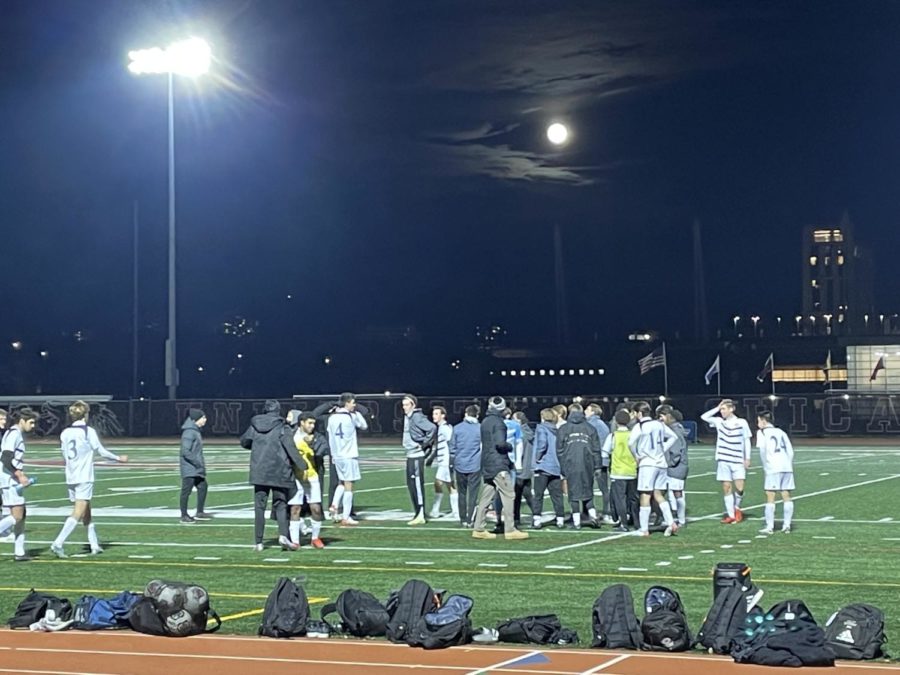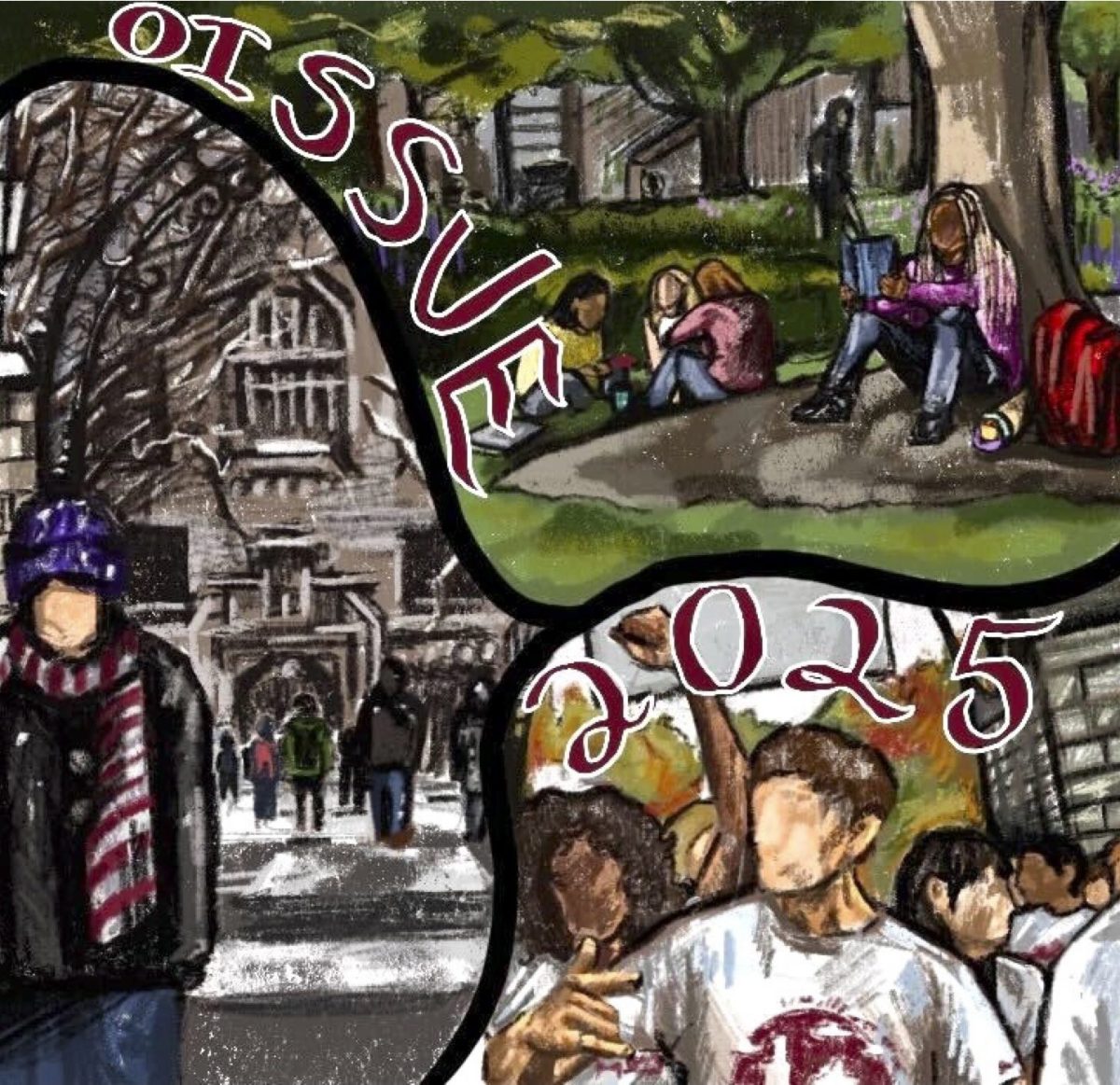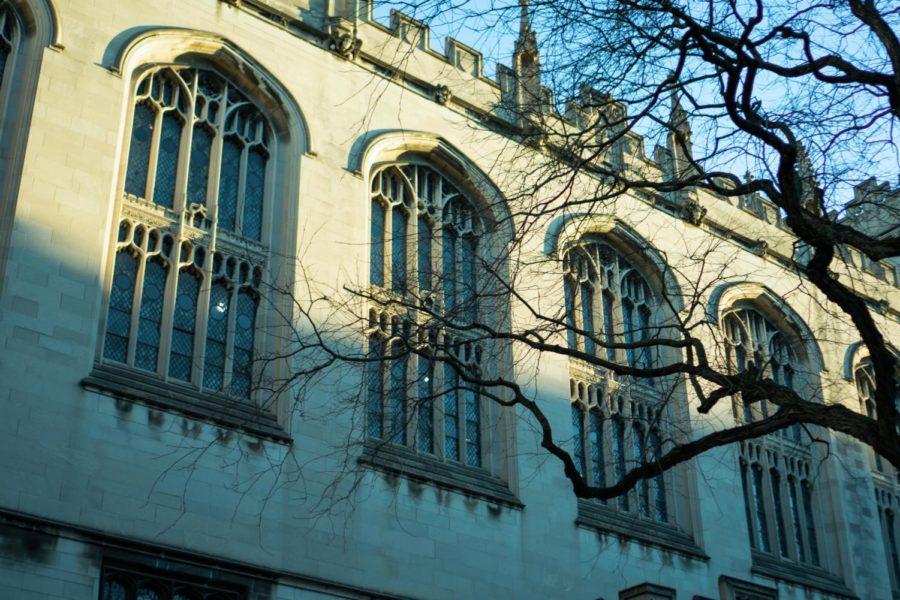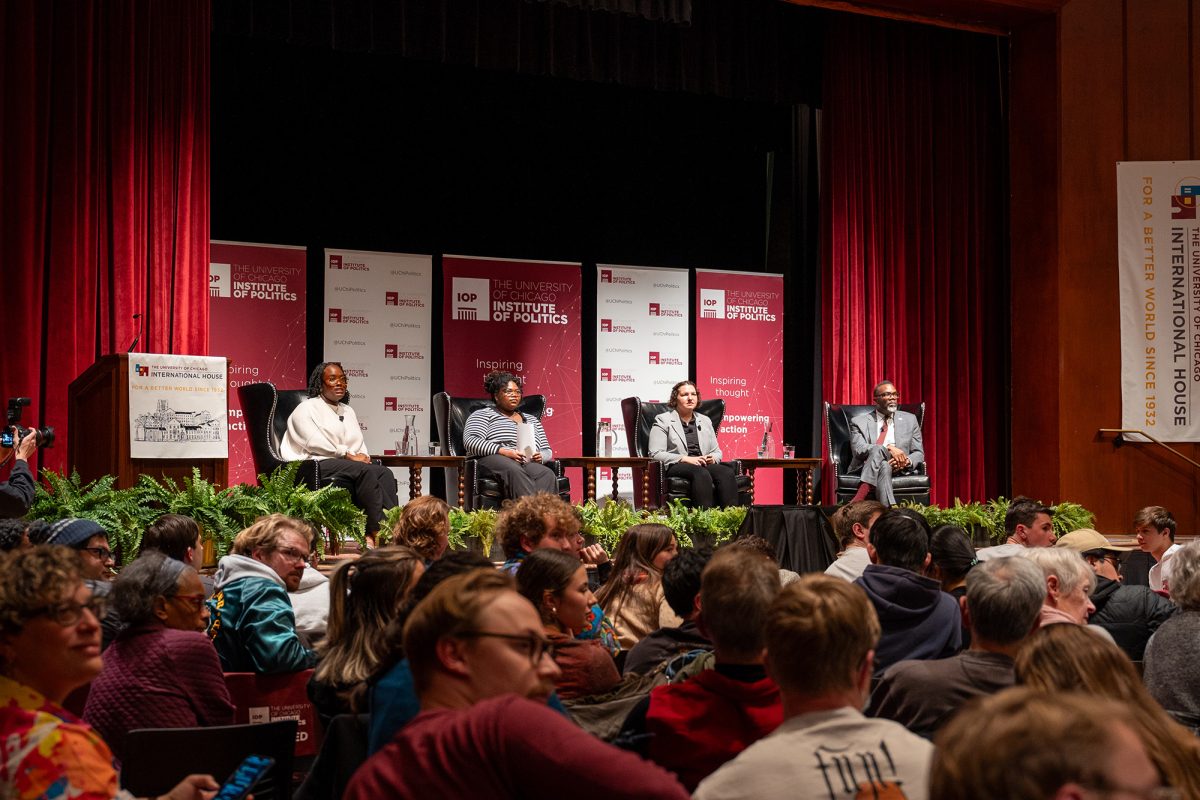In an interview with The Maroon on July 15, UCPD Chief Kyle Bowman discussed his motivations and goals for his tenure. He succeeded Mike Kwiatkowski as the Chief of Police for the University of Chicago Police Department (UCPD) on April 4. As chief, Bowman oversees UCPD law enforcement on the University and UC Medicine campuses, and within the extended patrol area of local communities. Since its formal establishment in the 1960s, UCPD is now staffed by approximately 100 officers according to the University’s Department of Safety and Security.
UCPD has faced controversies in the past few years including allegations of sexual misconduct by UCPD officer Alfred Olson this May; the January shooting of community member Rhysheen Wilson when he fired a gun at officers while experiencing a mental health episode; and the 2018 shooting of University student Charles Thomas, who, also while experiencing a mental health episode, was seen breaking windows with a metal pipe and charging an officer.
This interview has been slightly edited and redacted for clarity.
Chicago Maroon (CM): My first question for you, Chief Bowman, is: Why did you decide to take on this role as UCPD Chief, and what goals do you have for your tenure?
Kyle Bowman (KB): Thanks. I really enjoy the opportunity to talk about it. I think you probably know a little bit about my background. [For] 27 years, I was at the Michigan State Police as a deputy director. When I saw the posting for this job, one, to be frank, I just really like the city of Chicago. It’s always been a fun city for me to come to. So that attracted me to just take a look at what this University was about and what it had to offer. As I took a look at it and understood the University as a whole, and then as I’m going through some of the [University’s] interview questions, I understood what appeared to me to be their focus, which was: “how do you create a safe environment without feeling over-policed.” That really fit with who I was as a public safety leader at the Michigan State Police. All of my initiatives and programs there as a Lieutenant Colonel were really about resolving problems and preventing crime from happening: how can law enforcement members actually have less law enforcement to do.
Finding ways to reduce crime, preventing people from having to commit crimes, better partnership with mental health services, better partnership with the educational institutions that allow people to grow on their own—I saw a lot of that here with the University of Chicago, just on a smaller scale. At Michigan State Police, I had 83 counties [and] countless municipalities. Here, it’s a much smaller area, which really was going, I thought, to allow me to really wrap my hands around some true problem-solving issues.
I talk a lot about law enforcement or public safety being the end of the social safety net. What I liked about what I saw with this department was that there was already a focus on crisis intervention training to help people who are dealing with a critical incident in their lives—a mental health situation. So the officers were better prepared. I liked the fact that there already were opportunities for their officers to get out of a patrol car or bicycles, for example, I liked the fact that there was proactive engagement with students as well as the surrounding community, to hear what their concerns were, and to try to provide engagement. Seeing a police officer walking a foot beat on 53rd Street is amazing to me. And so those were some of the things that really drew to my passions that I wanted to be able to build on. And that’s exactly what I intend to do.
CM: Is UCPD making any efforts to be more transparent regarding its budget?
KB: I haven’t had any conversations about that. When you talk about transparency, I would say, I’m definitely committed to being as transparent as I possibly can. What I will follow up with saying is that because of the nature of the job that we do, we do have to be cautious about what that compromises in terms of the objectives, to the goal. So I haven’t had any direct conversations about its specific budget. I do have to follow the guidelines, in terms of overall University policy; making the budget available to the general public is not going to be a call made at my seat.
CM: In light of incidents, like the officer fired for sexual assault last May, has UCPD reviewed or modified its hiring practices at all or plan to review or modify its hiring practices in the future?
KB: So I’m being told that it was taken seriously before, let me say that at first. As we are going through hiring practices now, we certainly take the opportunity to try to identify if there’s a concern, a safety concern, or a mental health concern for someone that comes in that may cause a risk, or cause that person to be more of a threat to public safety than a help for public safety. So for actual specific changes, I would say, aside from asking questions to understand a person’s behavior, which is part of our interviewing process, we ask questions that are designed. You know, for example, tell us about a time you had a disagreement with a coworker? How did you handle that? Those are the types of questions that we ask in order to understand a person’s behavior. When we conduct background interviews, we also can ask specific questions. Are you aware of this person being involved in any harassment type of activity? Any racial intimidation type activity? Any sexism or stuff like that? We can still ask those questions. The reality is, we’re dependent on people being honest and giving us fair answers. Sometimes we just don’t get the information that we need.
I do think that even though that happened prior to me coming, the fact that as soon as they became aware of what act he had committed, taking him off of the rotation and suspending him was the appropriate step. They did it as soon as they became aware of it; I don’t know if they could have moved any faster. But to your specific question about trying to be able to screen out, there’s always a balance between being an equal opportunity employer and giving someone a fair shot at a position that they may be qualified for. We try to find that balance that we’re within legal compliance of our hiring practices.
CM: As a new face in the community, how have you built relationships with stakeholders? What stakeholders have you found most receptive and helpful so far?
KB: I pretty much walk everywhere on campus that I have to go, to the dismay of some of my colleagues because I have to build in a little bit extra time, sometimes if I’m getting to a meeting on 53rd Street. But I walk a lot because I feel that’s really the way to feel the environment. I make a point of going into the Medical Center for lunch, just to kind of feel the environment. And then I have formal meetings, and I’ve done a lot of community events. I’ve met with several of the aldermen and I met with some of the community groups. I just met with one this week at the Midway ice rink to talk to them about our policing philosophy. I went to the Woodlawn safety summit a couple of weeks ago. I had some direct one-on-one conversations with some people, and then just trying to get around in general to talk to various groups and engage with them.
I got here in April and pretty much this has been in my time just trying to understand the dynamics of what I have and the administration of it, but even simple things like attending some of the sporting events and seeing how those go and seeing how people are taking that and enjoying it, to see how we can better serve as part of it. So it’s everything from the informal interactions, walking around attending functions and events, to the formal meetings, or seminars that may be put on at the Rubenstein [Forum]. I have gone to one or two of those. Talking to faculty members and students as those opportunities are presented. I have also ridden a bike patrol twice with my officers.
CM: What is your current assessment of the relationship between students and the department and the relationship between the wider community and the department?
KB: I think it’s good. I think there’s always an opportunity for improvement; I think there are some misconceptions about what we’re trying to do sometimes. And I think part of that is, at times, I think our officers may not communicate enough. It’s not necessarily the responsibility of our officers to explain everything they’re doing right at the time, so say they’re dealing with a situation and someone wants to know what’s going on; I think there’s an opportunity for that to be discussed later on. That’s what our community engagement section is about. But the interactions that I’ve had have been positive. I’ve gone to a couple of community groups, they’ve all been positive, they usually want to know about my background, what my philosophy is, and then usually there may be one or two questions that I may get, and a lot of times the questions are about, you know, will you hire more officers? I get the response that they appreciate our response time for a call. And they appreciate the way our officers treat people. And although I hear that more from when I go to the community meetings, and because of probably the time that I came in, I didn’t get a lot of the one-on-one student interactions. And so I haven’t been able to get as much feedback directly one-on-one from students. So there’s always a difference between what I get from interactions versus what’s being passed on to me from others. But from what I understand, our student interactions were well-received.
CM: Going off that, is the department facing many challenges from a staffing perspective?
KB: I think every law enforcement agency across the country is struggling with staffing, trying to recruit and trying to market ourselves in a way that allows us to select the best candidate, and that’s going to be defined differently from agency to agency. So for us how we’re defined is that we want someone that is interested in service. When I say we’re interested in someone that wants to be involved in service, a successful day for an officer isn’t about how many people they arrest or how many tickets they write. In fact, we don’t even promote writing tickets or taking people to jail. And I’ve specifically gone to each roll call and told them that’s not my expectation.
My expectation is we’re operating in a way that’s preventing people from becoming victims, and I’m very specific about preventing people from becoming victims because it’s really about understanding our role to who we serve. And if we’re working a case, it’s always something good for when a police chief gets up and talks about how they were able to apprehend somebody, right? You’ve seen those national stories, that’s great. My goal would be not to have that. Now, the reality is, I’m never gonna get to a point in my lifetime, it’s just the way that nature is for people, that we will never have cases.
But our focus is finding people that are motivated to be proactive enough that our interactions with the public are more about non-enforcement activity than enforcement activity. And so I tell my officers: hey, if you work your shift and you haven’t really arrested that many people, but you reduce the calls for service. So just an example, if they’re assigned to an area, and typically they get five calls for service for an hour. And they go on shift and they’re down to two, three calls of service for an hour, but they end up still not really arresting anybody. That’s a success. We don’t want to have to arrest anybody. We want to prevent people from committing crimes, whether or not we help them through a mental health crisis, or connect them to some other social services because there’s that type of criminal element.
Then there’s the other type of criminal element, which is, quite frankly, there’s some evil people out there that will take advantage of people where they can and that’s their model. Those are the ones we want to focus in on. And so it’s about recruiting people that understand that, and that’s part of the challenge. Some people that want to be police officers may not be cut out for being police because of what we want to do and how we want to serve. So it’s really about service. Criminal justice majors we’ll take, but I’m looking for that person in social sciences; I’m looking for that person in humanities. I’m looking for that person that is really interested in having a positive impact on people’s lives and likes interacting with people.
CM: Can you expand on non-enforcement?
KB: Yeah, so it’s a challenge, right? Because it’s very different from how policing has evolved. And I view policing differently than public safety. I like to say public safety, because that’s what I really want to go for. Policing is really about the enforcement aspect of it, and so in Michigan, we really started partnering with the Department of Mental Health and Human Service to identify resources, so that when our officers did come across something that initially would be an enforcement role—what I’m trying to do is make sure that the tools that our officers have access to go beyond the things that we typically think of from policing, in terms of handcuffs or a weapon; I want them to have access to [resources to] resolve the situation at the lowest level possible.
And so, one of the things that we did in Michigan that I’m hoping to be able to do here is to expand access to resources. So one of the things that I’ve asked the victim services director to do is identify, at the state, county, and city level, what sort of social services are available in this area, which ones are available to citizens as a whole, and which ones are available specifically to the University.
Using a simple example that is a real scenario that I went through once [in Michigan]: During a traffic stop for a vehicle that was stopped for a smashed windshield, the trooper noticed that the children in the back seat did not have a child seat. The brake lights weren’t working. And the person’s excuse was they were just making a quick run to the local pantry. The trooper is stuck with trying to decide what to do. Because the car’s not safe, the kids aren’t safe, and the driver shouldn’t be driving. So he should be towing the car based on standard protocol. At that time I was a commander, and I happened to be in the area so I stopped by. The goal here is to create a safe environment. So he didn’t have access to a lot of things.
The fact that the driver has food in the car from a food pantry tells you that if the car’s towed, she’s not going to afford to even get that car out of the tow yard. We know if we write her a ticket for the child safety restraints, which Michigan State Police had a zero-tolerance policy for, she’s not gonna be able to afford that. So we know that’s a warrant six months down the line because she’s not going to take care of that ticket. So what we did was we made arrangements to get someone to come over and help transport everyone else. We grabbed child seats from the [station] because we had them at our location. We installed those. The point is identifying things for our officers here at UCPD so that when they come across a situation, it can be resolved and not have to create a greater issue.
Another quick example is: during a domestic violence assault, how do we get that victim and potentially that suspect the help that they need? If the suspect has committed a crime, but we know they’re committing a crime because of other issues that they have, social issues. Can we get them into facilities that help them fix those problems, so that they no longer are committing domestic violence?
CM: What do you see as the department’s biggest challenges going forward?
KB: So it’s a couple of things and I’m still doing some of my assessment. But one, it’s about getting our staffing levels where we need to be at. As I already mentioned, it’s about marketing to get the right people. You can have a person that’s gone through school, and they’re a 4.0 and a criminal justice degree, but that doesn’t mean they are suited to serve. So that’s part of defining who we are as a department in what we’re looking for.
As we’re watching the national uptick in violence, that’s always a struggle: because a default for a law enforcement agency when crime goes up is to arrest more people. And that’s the traditional default of all police agencies, because that’s what we’re measuring. Usually, the pressure comes from the community saying, “you need to help do something about getting these people off the streets,” which is to arrest people. What I’m trying to do here, which I think has been well-received so far from the officers, is to shift to finding more proactive ways to reduce the amount of crime. Find ways to increase our non-enforcement contact over our enforcement contact.
So let’s just say, for example, high thefts of motor vehicles. I don’t like the numbers that I see in the surrounding area, and in our area. They aren’t that bad for our extended patrol areas, but I still don’t like the numbers that I see. When you get outside of our extended patrol area, they are far worse. What I want to try and do is figure out what vehicles are being stolen, and then, what we can do to tackle that issue that doesn’t require us to arrest more people, but instead allows us to be proactive enough to prevent those from happening first.
CM: And beyond those two things, staffing and being more proactive. Do you foresee any other challenges going forward for the department?
KB: I think I have a hard time coming up [with] a lot of challenges, because I actually think our officers are great. I think our sergeants are great. I think they’re looking for the opportunities for growth and development, which we can move forward. So I think there are some, not challenges, but some opportunities for us to grow and expand our resource and knowledge. I don’t want to make it sound like there’s nothing for me to work towards. There definitely are things we’re going to work on, but I gotta be honest with you. I mean, I’ve looked at agencies all over the state of Michigan. And in the short time that I’ve been here, I think we’re far ahead of a lot of other agencies because of the work ethic of most of the people here. So I think the overall challenge is really just identifying our key strength, and how do we grow on it to reduce the amount of crime.
I don’t want to see crime at all. I don’t want to see strong-armed robberies. I don’t want to see shootings. I don’t want someone having their car stolen. Ideally, I would like the criminal element to think, hey, that’s that area that UCPD is in, we don’t want to go in that area at all, because it’s not comfortable for us to commit a crime. But I don’t want to do that by creating a police environment where it’s because you’re always being stopped by the police or you’re always being dragged into handcuffs, right. That’s not the environment that I want to create.
CM: Have you interfaced at all with the officers’ union? And how has that relationship developed over time?
KB: I interact with them on a regular basis. Matter of fact, the two times I went on bike patrol, both of them were with union leaders that also happened to be field training officers. My relationship with the [union] president is strong. I’ve been in other environments where it has not been as strong. This one I feel is solid. They obviously have their perspective. And we certainly can have some disagreement, but we so far have been able to find common ground on just about all the issues that we’ve had to discuss.
CM: What are your thoughts on community surveillance in the form of deploying cameras, shot spotters, and other technology as a way of combating crime?
KB: This is always an interesting question for me. So I’m gonna split hairs on terminology. One, I don’t like to use the word surveillance at all. Surveillance is a very specific aspect of a criminal law enforcement component, where we’re actually actively working a criminal investigation, and therefore we’ll do surveillance. I think what you’re asking about is that overall, casual monitoring. For me, the value is, if you’re going to have cameras, people are expecting someone to be watching. The reality is, for the majority of the cameras, there isn’t someone watching that camera at all times. So when sometimes I hear stuff from the public about, hey, we don’t want to be in a police state, we don’t want to be surveilled, the reality is only a small percentage of those cameras are actually being monitored at any given time, just based on staffing alone.
The use and the value of it is, in a campus-type environment, you usually have fixed locations that you actually can monitor and probably for me, in my current seat, the most value is when we have students on campus, I want them to feel comfortable, and it’s a challenge in this area. I want them to feel comfortable 24 hours a day, seven days a week, to be able to walk around campus, inside and outside. I want them to be able to decide: I’m going to the library at 12 o’clock at night, and it’s okay for me to do that because UCPD and public safety have created a safe environment. I can’t do that solely with bodies. Cameras have to be a component of that. And so creating a safe environment by using cameras, if we can do that, then I would 100% support that. It has to be done in a way that really supports the people that are out so they feel safe. If it gets to the point where they don’t feel safe because of the cameras, there either is a breakdown in communication, or there’s something else that I have to work through with the public.



